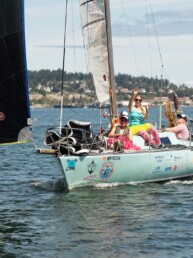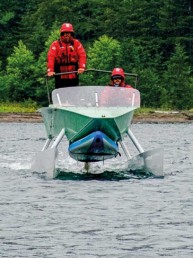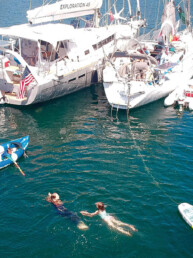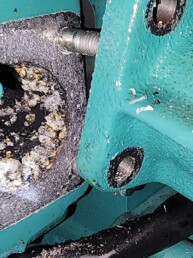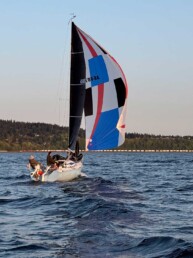A small boat, engineless sailor reminisces on his experiences with motors and makes peace with their useful purpose aboard.
My first experiences on the water were all about velocity. Riding in the fiberglass ski boat my family owned when I was in grade school, I was mesmerized by the speed, by the wind blowing so hard in my face that tears streamed out of my eyes, unless I sat behind the windscreen. I loved the feeling in my stomach when the bow rose as my father accelerated. Profoundly unaware of the motor’s roar, I remember only the adventure: reeling in a thrashing fish, pulling up on a beach, jumping in the water, and observing fascinating creatures, like a pulsating jellyfish.
Yet when I began boating as an adult, I subconsciously avoided motorboats and motors themselves. The satisfaction I gained from a series of small sailboats made motors seem unnecessary. Still, I occasionally found myself at the helm under power: running a committee boat for races, or sailing with an older friend whose boat was equipped with a cantankerous, smoky British Seagull outboard; and on various writing assignments, ranging from steering a tour ship to reviewing a duck hunting boat.
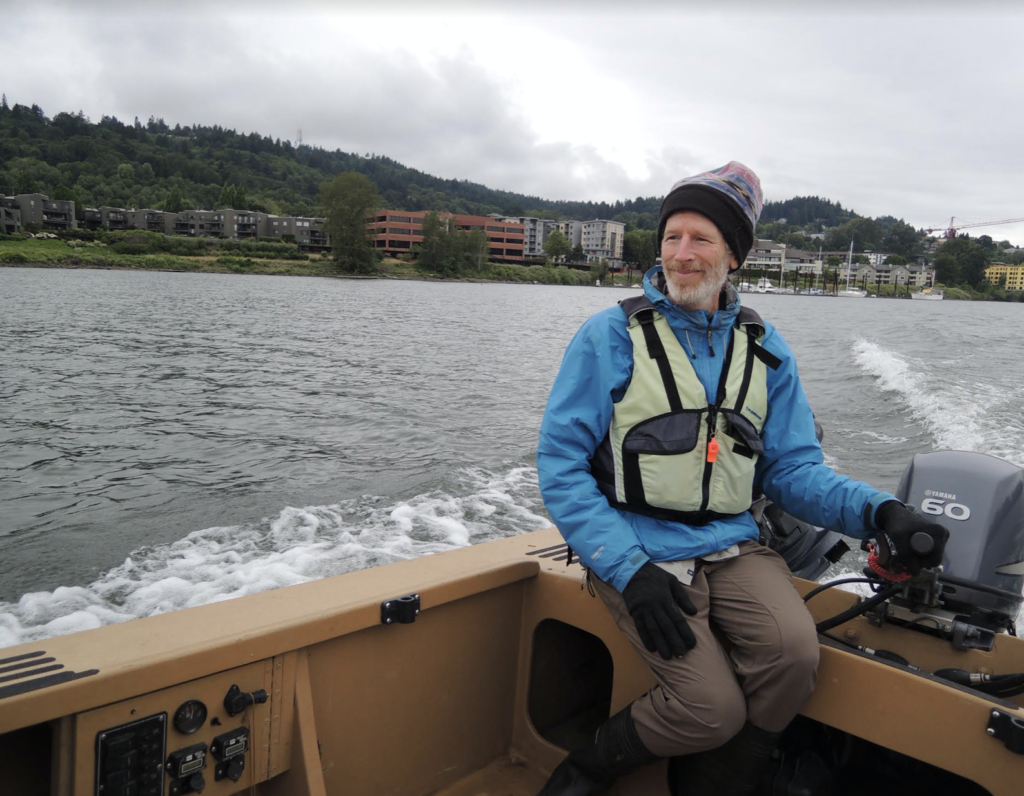
My research trip for the duck boat took me right back to my childhood; as I cranked the throttle of its 60-horse engine, I felt the boat move quickly to a plane. It was just as exhilarating as I remembered—but while the boat was well designed and thoroughly safe, I felt emotionally out of control. I wasn’t connecting with the water, so much as skimming over it, an experience which blunted my usual instinctive reading of the conditions, much as I tried to avoid hitting something. How long, I wondered, would it be until the motor burns up or breaks down?
A few months ago, my friend Dennis invited me out on his 35-foot Tollycraft. I would have been happy to sit and watch the scene go by, but after we left the marina, he kindly insisted that I drive into the Columbia River. Eight feet above the water, I sat at the bridge, clutching the wheel tightly, and looked ahead at a channel hemmed in by houseboats and moored yachts. I noted what was on the move and tried not to stare unnecessarily at the depths on the chart plotter.
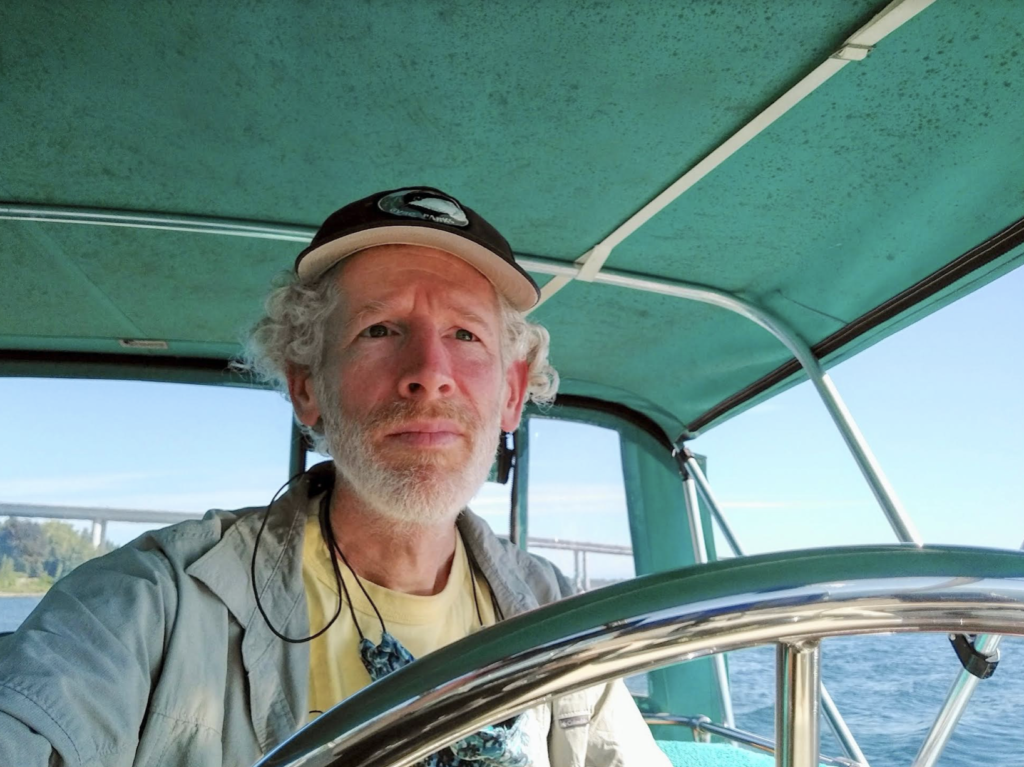
Three miles on, I had successfully piloted the Tollycraft beneath the massive Interstate 405 bridge. Its concrete footings stood firmly against the current, and for once I didn’t worry that the wind would die here, leaving me to drift towards the house-sized structures without steerage. But my calm was shattered by a sudden a change in the hum of the engine. By the time I turned to ask Dennis what to do, a terrible grinding, groaning sound was coming from beneath the aft deck, and a cloud of dense white smoke appeared. I stared in shock. Surely the boat was about to catch fire, collide with the bridge, and sink. And it would be all my fault.
Dennis took a calmer approach. After powering down both engines, he climbed down to the aft deck and surveyed the scene, fire extinguisher in hand. When the smoke dissipated, he opened the engine compartment, from which he retrieved a handful of the starboard motor’s shattered metal gears. We limped back to the marina on the port engine alone. The crisis was averted, but my apprehension remained until we were safely moored back at Dennis’ slip.
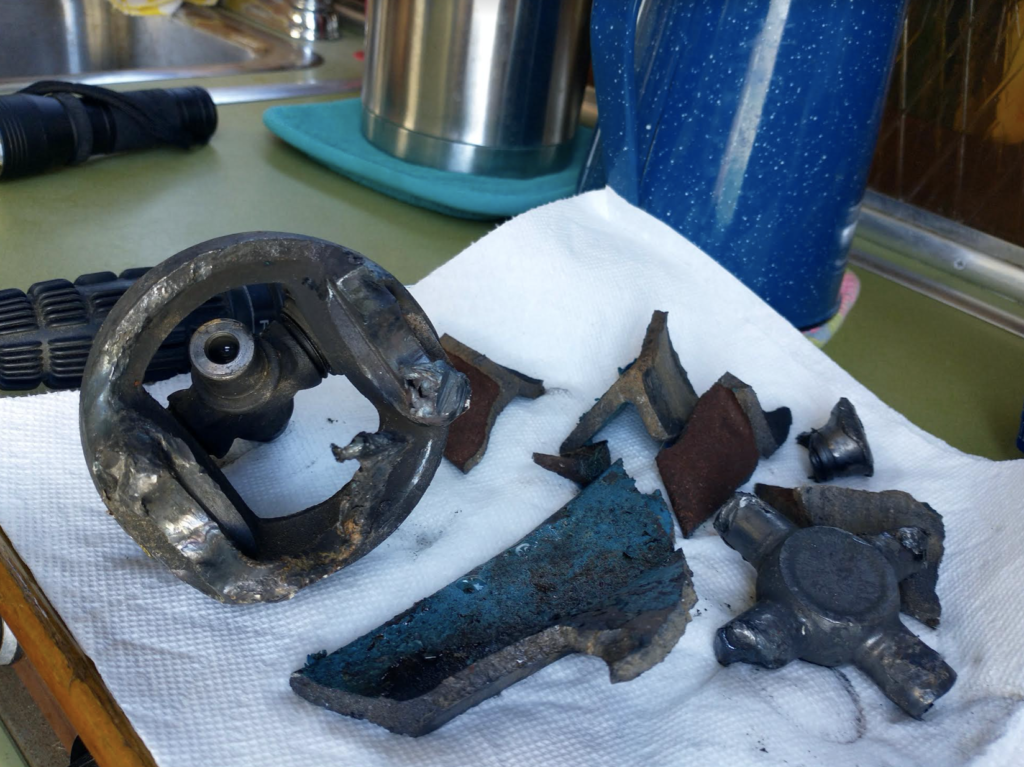
Experiences like the one with Dennis make it difficult for me to feel comfortable with motors. I wish I could be more at peace with them, like my friend Anton. He doesn’t like the noise or smell either, but he’s wired differently than me, “I’m a mechanic and love machines and using them,” he once told me. “I find that looking at a machine will tell its story. In the same way that some people can look at terrain and see history, or organisms and see evolution, I can look at minute scratches and see wear and damage, or disassemble a machine and learn about how it works by seeing its construction.”
Despite my misgivings, however, I now own a trailer-based sailboat with a motor. And I realize that I should be more like my friends: I should admit that a motor can play a useful role, even on a small boat. Maybe I can conquer my fear of losing control by investing the time to learn a bit more about them, instead of avoiding them. With confidence and control attained, perhaps boating with the iron mizzen will even help me re-experience the thrill I felt as a kid, when the roar of the engine signified the adventure of reeling in a fish, landing on a beach, or just cruising along, my eyes tearing up in the wind.
Bruce Bateau
Bruce Bateau sails and rows traditional boats with a modern twist in Portland, Ore. His stories and adventures can be found at www.terrapintales.wordpress.com

